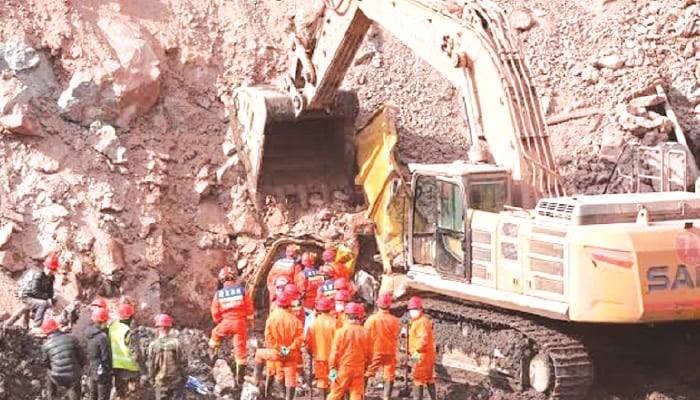The Petroleum Technology Development Fund (PTDF) and the University of Jos (UNIJOS) have jointly initiated a capacity-building workshop aimed at promoting modern, sustainable, and secure mining practices in Nigeria. The workshop, themed “Enhancing Safety, Sustainability, and Community Development in Mining,” brought together stakeholders from various sectors, including government, academia, mining industry representatives, and local communities. The central message emphasized the urgent need to adopt international best practices and standards in mining operations to mitigate security risks and foster sustainable development within mining communities. The PTDF emphasized its commitment to promoting safety and sustainability in the mining sector through research and innovation initiatives. The agency believes that adherence to established standards and best practices can significantly reduce insecurity in mining areas.
The PTDF reiterated its commitment to training miners on safety and best practices, believing this will contribute to reducing insecurity in mining communities. The agency emphasized the importance of the training programme falling under its research and innovation mandate, highlighting the collaboration with UNIJOS in developing measurable outcomes to assess the impact of the initiative. These expected outcomes include the adoption of safer mining practices, adherence to industry standards, improved environmental management, and the enhancement of ecosystems and livelihoods in mining areas. The partnership between PTDF and UNIJOS underscored the role of academia in contributing practical solutions to national challenges through collaborative efforts.
UNIJOS emphasized the importance of collaboration between academia, industry, government, and local communities in addressing the complex challenges facing the mining sector. The university expressed its commitment to utilizing knowledge and research to drive inclusive development and safer mining practices, particularly in the Middle Belt region, which is rich in both mineral resources and human potential. The university views the workshop as an opportunity to leverage academic expertise to address real-world issues and contribute to positive change within the mining industry and its surrounding communities. UNIJOS highlighted the significance of education and research in promoting responsible and sustainable mining practices that benefit both the economy and the environment.
The organizers of the workshop recognized the urgent need to address the challenges plaguing the mining sector, including environmental degradation, unsafe practices, and social tensions arising from artisanal mining activities. They stressed the importance of balancing economic gains with environmental stewardship and social responsibility to ensure the long-term sustainability of the mining industry. The training aimed to foster dialogue and knowledge exchange between miners, scientists, and policymakers, focusing on crucial areas such as health and safety, mercury-free processing techniques, cooperative development, and effective waste management strategies. This multi-faceted approach sought to address the interconnected issues affecting the mining sector and promote a more holistic and responsible approach to mining operations.
Representatives from the Miners Association of Nigeria (MAN) and the Plateau State government highlighted the challenges and policy gaps affecting the mining sector. The MAN articulated the grievances of miners, which included harassment, multiple taxation, revoked licenses, and high interest rates on loans. They advocated for streamlined licensing procedures, transparent revenue audits, micro-licensing for artisanal miners, and the establishment of a dedicated mining security task force to address security concerns. These recommendations aimed to create a more conducive environment for miners and promote responsible mining practices. The Plateau State Commissioner for Environment, Climate Change, and Minerals acknowledged the existence of regulatory inconsistencies but urged miners to operate within the legal framework.
The Plateau State government expressed its commitment to addressing the challenges in the mining sector and promoting responsible mining practices. The Commissioner emphasized the importance of enforcing existing regulations rather than creating new ones and announced the government’s approval for the continuation of over 40 abandoned mining projects across various local government areas. This initiative aimed to curb illegal mining activities, support economic recovery, and provide employment opportunities. The workshop, attended by over 250 miners, provided a platform for stakeholders to discuss critical issues, share knowledge, and collaborate on solutions to improve the safety, sustainability, and community development aspects of the mining sector. The collaborative effort between PTDF, UNIJOS, and other stakeholders demonstrated a commitment to addressing the challenges facing the mining sector and promoting responsible mining practices for the benefit of all.














